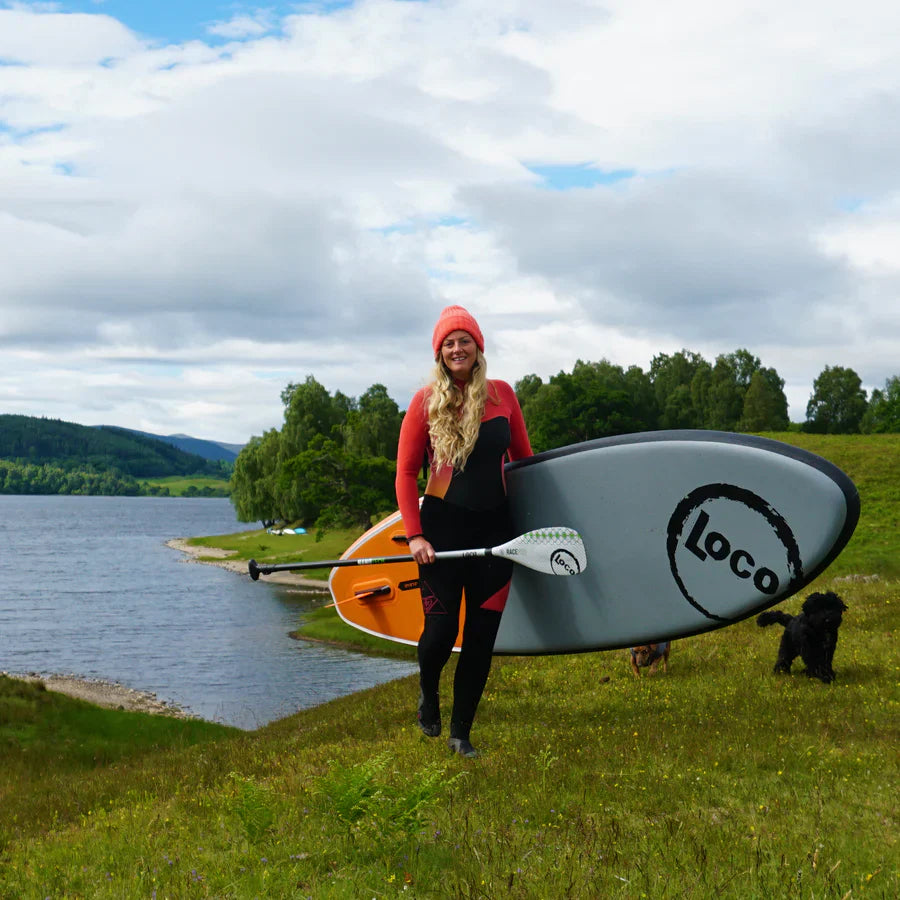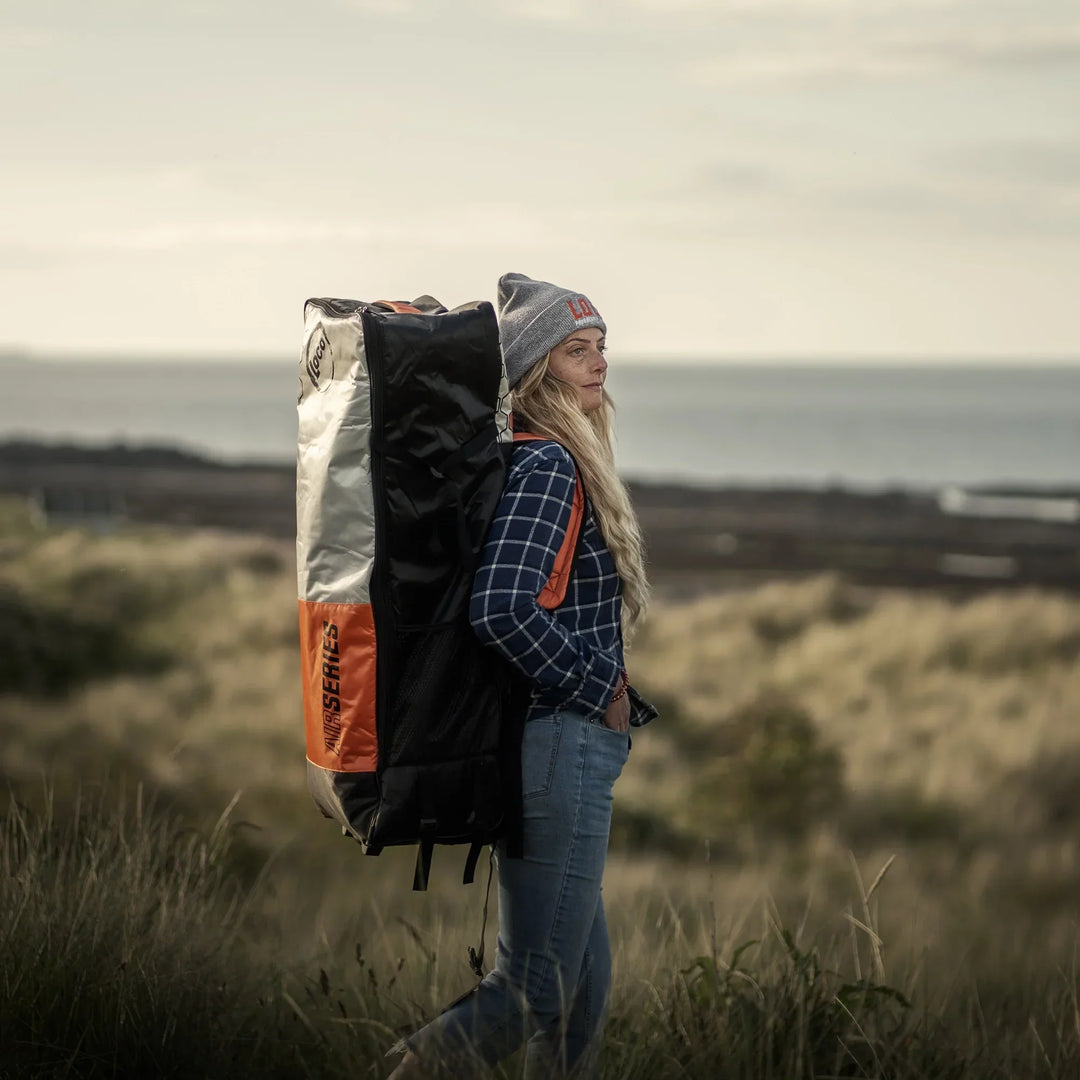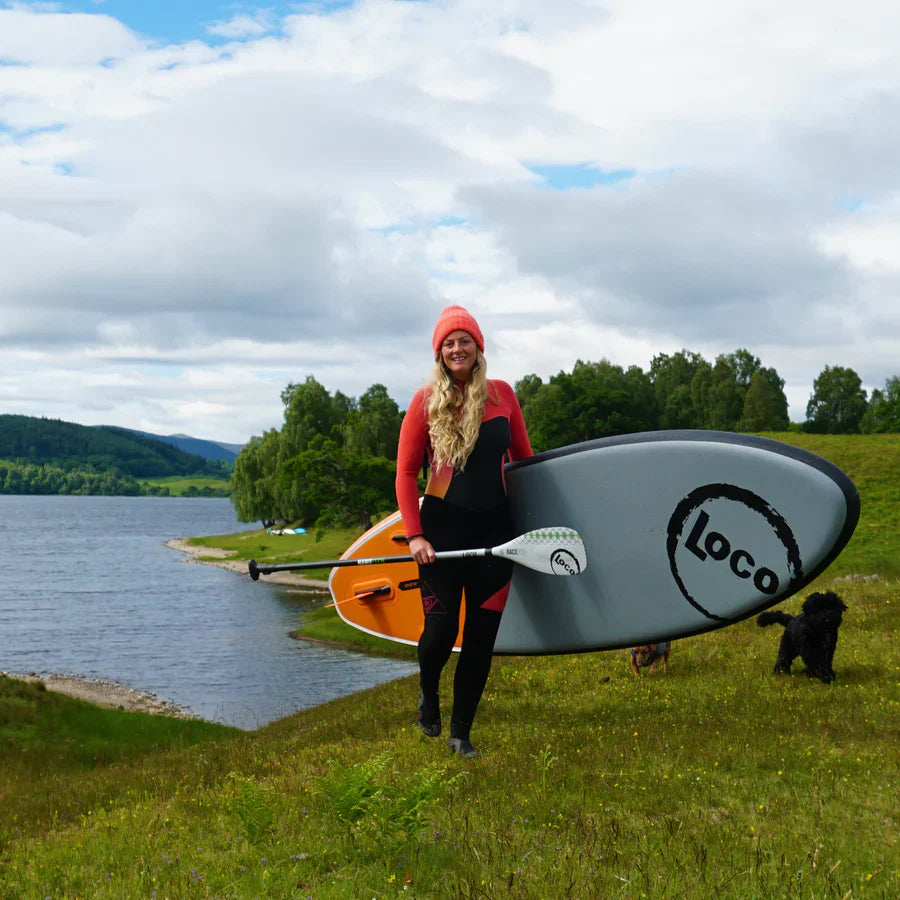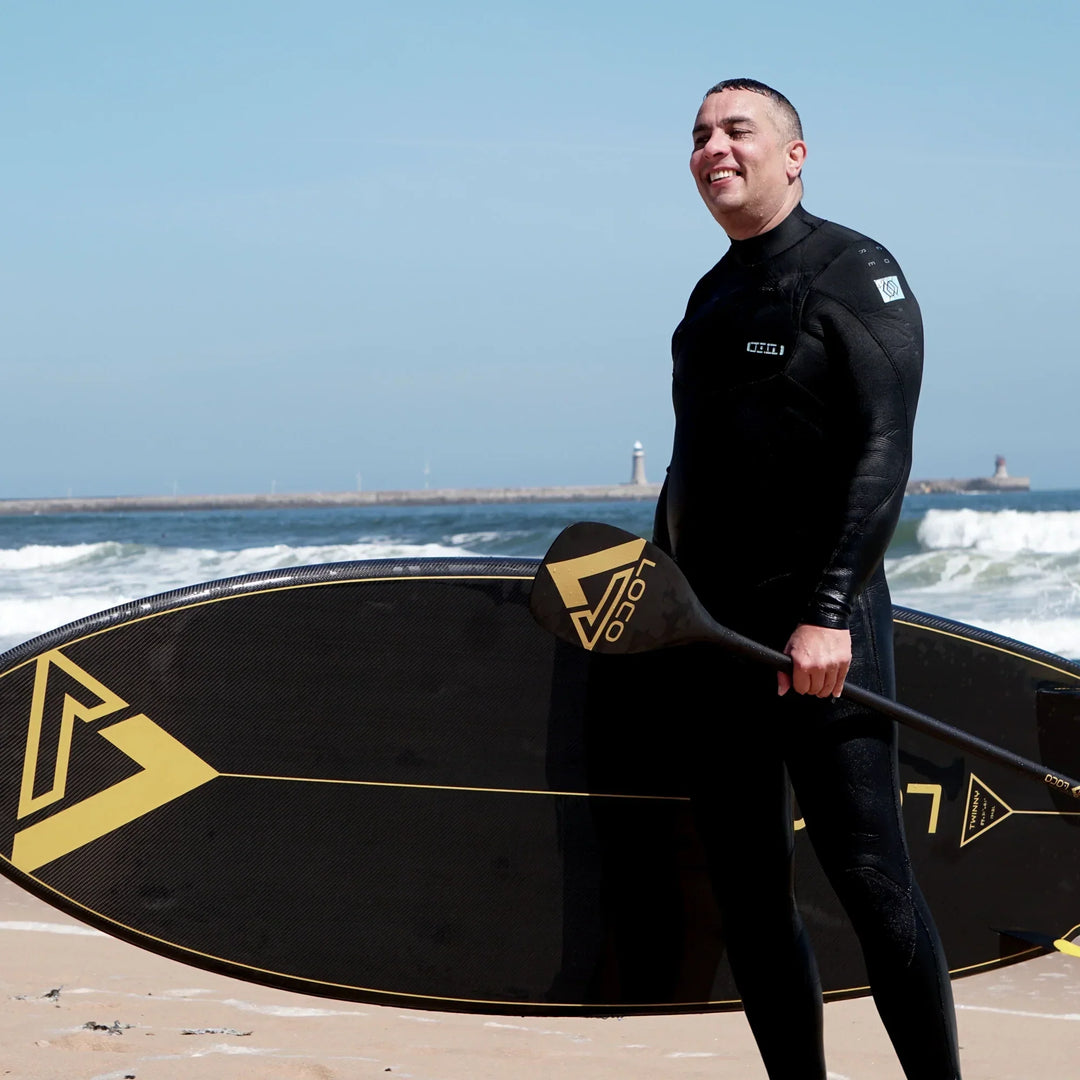The Inflatable Paddle Board Is Ruining Our Sport?

Introduction To Inflatable Paddle Boards:
The inflatable paddle board (iSUP) has indeed made paddleboarding accessible to the masses, but are they damaging the sport’s reputation and the environment? Let’s explore both sides of this heated debate.
The Rise Of The Inflatable Paddle Board
iSUPs have lowered the cost barrier versus traditional composite boards, making paddleboarding popular with newcomers. However, their rapid rise has sparked concerns about safety, overcrowding and quality.
The Environmental Impact of iSUPs
-
Mass Production & Waste: Low-cost PVC inflatables from online marketplaces often fall apart within a season, adding to landfill waste. While it's easy to just prioritise price or same day delivery cheap boards seldom have anything good about them and often hamper the learning process. Poorly informed paddlers may also disrupt local ecosystems and wildlife.
-
Durability Concerns: Unlike high-quality hard boards that can last decades, cheap inflatables typically degrade quickly, with little to no recycling potential. It makes sense to spend a little more and get an inflatable that is guaranteed for at least 5 years!
Safety Issues with Budget iSUPs
-
Unreliable Gear: Bargain inflatables from Amazon and supermarkets often include paddles that sink and leashes that snap. Do you really want to be caught out a several hundred metres offshore necessitating an RNLI rescue?
-
Offshore Wind Risks: Inexperienced paddlers using low-quality boards are more likely to be caught out in dangerous conditions. While it's easy to look at others paddleboarding and think 'how hard can it be', the reality is you can drift further than you can confidently swim back to shore in a matter of minutes with inefficient technique. The reason why responsible brands like Loco always recommend at least one lesson before venturing out by yourself.
The Case for Hard Boards
-
Craftsmanship & Longevity: Hard boards, crafted from premium materials, connect paddlers to the sport’s surfing heritage and can last 20+ years. Even after heavy use, their EPS cores can be repurposed for children’s boards.
-
Performance & Resale Value: Unlike cheap inflatables, hard boards hold their value on the second-hand market, making them a better long-term investment. For some they can become an obsession with many SUP surfers owning various exotic models from their favourite brands.
Are iSUPs Lowering the Sport’s Standards?
-
Market Saturation: Inexpensive inflatables have flooded the market, contributing to overcrowded waters and safety hazards. Even in the microcosm of the North East we have seen friction between other water users and new paddleboarders who've not taken the time to learn technique, safety procedures and consideration for other other water users. This gung-ho mindset certainly needs to change before someone drowns.
-
Skill Dilution: The abundance of poor-quality boards can mislead beginners, resulting in frustration and potential abandonment of the sport. We see this time and time again with heavier paddlers who are tempted in by single skin or sub 15psi boards, they're simply not fit for purpose and will make balancing nigh on impossible especially in any kind of wind or chop. Beginner of family boards should be wide and stable and sized to a riders weight as an overly-voluminous board can be just as bad, promoting poor stroke technique, false impression of ability and will drift offshore much quicker and will be nigh impossible to turn quickly in an emergency for lighter riders.
- Brand Interest In Inflatables: It's no surprise that many established brands are moving away from investing any time and money into developing exciting new inflatable paddle board designs when their margins are being squeezed by the influx of cheap Chinese boards via Amazon, the supermarkets and Temu. It's a sad situation really as ultimately brands with actual board designing knowhow will exit the market which won't be great for getting paddlers on kit that actually works.
Conclusion:
iSUPs aren’t inherently ruining the sport, but cheap, low-quality models are a problem. Responsible choices such as investing in well-made boards and learning proper water etiquette can ensure paddleboarding remains enjoyable and sustainable for everyone. The best way to buy a board is by demoing one locally if possible or speak to someone who's been around the sport for many years and can give you some time-served advice.
If you'd like a win a selection of premium paddleboards this Easter be sure to head over to our Facebook page, find the competition post and follow the instructions to win a life-changing bundle of Loco swag.




